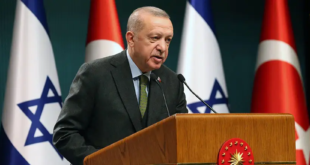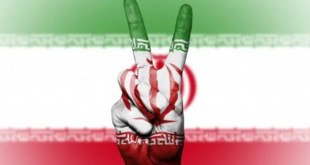BAGHDAD (AP) — US forces, joined by Iraqi troops, on Thursday launched the largest airborne assault in nearly three years, targeting insurgent strongholds north of the capital, the military said.The US military said the offensive dubbed Operation Swarmer was aimed at clearing “a suspected insurgent operating area” northeast of Samarra and was expected to continue over several days.
More than 1,500 troops — including more than 800 Iraqis and 650 Americans — over 200 tactical vehicles, and more than 50 helicopters were used, the military said.
It was the largest number of aircraft used to insert troops and the largest number of troops inserted by air since April 22, 2003, when the 101st Airborne Division conducted an air assault mission from Iskandiriya to Mosul, military officials said. There have been operations involving larger numbers of troops overall.
Samarra, about 95 kilometres north of Baghdad, was the site of a massive bombing against a Shiite shrine on February 22 that touched off sectarian bloodshed that has killed more than 500 and injured hundreds more.
It is a key city in Salahuddin province, a major part of the so-called Sunni triangle where insurgents have been active since shortly after the US-led invasion three years ago. Saddam Hussein was captured in the province, not far from its capital and his hometown Tikrit.
Iraq’s interim foreign minister, Hoshiyar Zebari, said the attack was necessary to prevent insurgents from forming a new stronghold such as they had established in Fallujah, west of Baghdad.
“After Fallujah and some of the operations carried out successfully in the Euphrates and Syrian border, many of the insurgents moved to areas nearer to Baghdad,” Zebari said on CNN. “They have to be pulled out by the roots.” The assault was launched just hours before Iraq’s new parliament was sworn in Thursday behind the concrete blast walls of the heavily fortified Green Zone with parties still deadlocked over the next government, vehicles banned from Baghdad’s streets to prevent car bombings and the country under the shadow of a feared civil war. The long-expected first session, which took place within days of the third anniversary of the US-led invasion, lasted just 40 minutes and was adjourned indefinitely because there still was no agreement on a permanent speaker for the legislature and his deputies.
Residents north of Samarra said there was a heavy US and Iraqi troop presence in the area and that large explosions could be heard in the distance, although the US military said no bombs, missiles or other ordnance were fired from the air.
Residents said the operation appeared to be concentrated near four villages — Jillam, Mamlaha, Banat Hassan and Bukaddou — near the highway leading north from Samarra to the city of Adwar. It was still not clear if the operation had met any overt resistance, or if the US aircraft had conducted any attacks.
Waqas Juwanya, a spokesman for the provincial government’s joint coordination centre in nearby Dowr, said “unknown gunmen exist in this area, killing and kidnapping policemen, soldiers and civilians.” Near the end of the first day of the operation, the military said 41 people had been detained and a number of weapons caches captured, containing artillery shells, explosives, bomb-making materials and military uniforms.
It said the attack began with soldiers from the Iraqi Army’s 1st Brigade, 4th Division, the US 101st Airborne Division’s 3rd Brigade Combat Team and the 101st Combat Aviation Brigade conducting a combined air and ground assault to isolate the targeted area.
Air power backed the operation and delivered troops from the Iraq Army’s 4th Division, the Rakkasans from 1st and 3rd Battalions, 187th Infantry Regiment and the Hunters from 2nd Squadron, 9th Cavalry Regiment to multiple objectives.
The military said forces from the Iraqi 2nd Commando Brigade then completed a ground infiltration to secure numerous structures.
In Baghdad, Adnan Pachachi, the senior politician who administered the oath in the absence of a speaker of parliament, spoke of a country in crisis.
“We have to prove to the world that a civil war is not and will not take place among our people,” Pachachi told lawmakers. “The danger is still looming and the enemies are ready for us because they do not like to see a united, strong, stable Iraq.” As Pachachi spoke, he was interrupted from the floor by senior Shiite leader Abdul-Aziz Hakim, who said the remarks were inappropriate because of their political nature.
Even the oath was a source of disagreement, with the head of the committee that drafted the country’s new constitution, Humam Hammoudi, protesting that lawmakers had strayed from the text. After brief consultations, judicial officials agreed the wording was acceptable and the session adjourned until further notice.
Acting Prime Minister Ibrahim Jaafari told reporters after the brief session: “If politicians work seriously, we can have a government within a month.” Jaafari’s candidacy for a second term as prime minister is at the centre of the political logjam that delayed parliament’s first session for over a month after the results of December 15 elections were approved.
Under the constitution, the largest parliamentary bloc, controlled by Shiites, has the right to nominate the prime minister. Jaafari won the Shiite nomination by a single vote last month.
Politicians involved in the negotiations have said part of the Shiite bloc, those aligned with Hakim, would like to see Jaafari ousted but fear the consequences, given his backing from radical cleric Moqtada Sadr and Sadr’s thousands-strong Mahdi Army.
Sunni, Kurdish and some secular Shiites argue Jaafari is too divisive and accuse him of not doing enough to contain waves of revenge killing after bombers destroyed the Shiite shrine in Samarra and ripped apart teeming markets in a Sadr stronghold in Baghdad on Sunday.
Hours after the session adjourned, two mortar shells were fired into the Green Zone, said Mohammedawi, the Interior Ministry official. There were no immediate reports of casualties.
Police discovered 29 more bodies discarded in various parts of Baghdad late Wednesday and Thursday. The victims were all men, some with their hands bound, who had been shot execution-style and dumped in both Shiite and Sunni Muslim neighbourhoods, said Mohammedawi.
North of the capital, a roadside bomb exploded near a girl’s primary school near Baqouba, killing three students aged 12-13 and injuring two others, police said.
Another bomb missed a US patrol in Mosul, killing one civilian and wounding three others, police said. Four more people were killed in a drive-by shooting in the city.
 Eurasia Press & News
Eurasia Press & News



